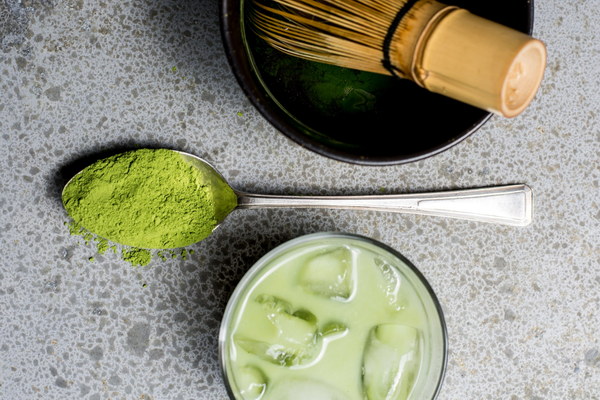Balancing Liver and Kidney Health A TCM Perspective on Differential Diagnosis and Care
In traditional Chinese medicine (TCM), the liver and kidney are considered two of the most vital organs, playing crucial roles in maintaining the body's balance and overall health. The concept of differential diagnosis and specific care for these organs is central to TCM practice. This article will explore how TCM uses differential diagnosis to nurture liver and kidney health, highlighting key principles and practices.
The Liver: The Emperor of the Five Elements
In TCM, the liver is known as the Emperor of the Five Elements and is associated with wood, which governs growth, development, and the smooth flow of energy (Qi). The liver is responsible for storing blood, regulating emotions, and facilitating the smooth flow of Qi throughout the body. When the liver is imbalanced, it can lead to various health issues, including stress, irritability, and even physical problems like pain or bloating.
Differential Diagnosis for Liver Health
TCM practitioners use a variety of methods to diagnose liver imbalances, including:
1. Observation: Examining the color, shape, and texture of the nails, hair, and skin for signs of liver imbalance.
2. Inquiry: Asking about the patient's mood, stress levels, and sleep patterns to identify emotional disturbances that may affect the liver.
3. Palpation: Feeling the abdomen for tenderness, bloating, or other signs of liver-related issues.
4. Tongue diagnosis: Observing the tongue's color, coating, and cracks to assess liver function.

5. Pulse diagnosis: Examining the pulse for changes that indicate liver imbalance.
Nurturing Liver Health
Once a liver imbalance is identified, TCM offers various treatment approaches to restore balance:
1. Diet: Encouraging a diet rich in vegetables, fruits, and lean proteins, and avoiding excessive sugar, alcohol, and spicy foods.
2. Herbs: Utilizing natural herbs such as dandelion, milk thistle, and bupleurum to support liver function.
3. Acupuncture: Stimulating specific acupuncture points to improve the flow of Qi and blood in the liver.
4. Massage: Applying gentle pressure to the liver meridian to promote circulation and alleviate tension.
5. Emotional balance: Encouraging relaxation techniques and stress-reduction methods to support emotional well-being.
The Kidney: The Root of Health
The kidney, known as the Root of Life in TCM, is associated with water and plays a crucial role in reproduction, growth, and development. The kidney is responsible for storing essence (Jing), which is the fundamental substance that sustains life. When the kidney is imbalanced, it can lead to fatigue, weakness, and other health issues.
Differential Diagnosis for Kidney Health
TCM practitioners use a variety of methods to diagnose kidney imbalances, including:
1. Observation: Examining the color of the urine, the texture of the hair, and the appearance of the nails for signs of kidney imbalance.
2. Inquiry: Asking about the patient's energy levels, sleep patterns, and reproductive health to identify kidney-related issues.
3. Palpation: Feeling the lower back and kidneys for tenderness or other signs of kidney problems.
4. Tongue diagnosis: Observing the tongue's color, coating, and cracks for clues about kidney function.
5. Pulse diagnosis: Examining the pulse for changes that indicate kidney imbalance.
Nurturing Kidney Health
Once a kidney imbalance is identified, TCM offers various treatment approaches to restore balance:
1. Diet: Encouraging a diet rich in warm, nourishing foods such as kidney beans, walnuts, and ginger, and avoiding cold, raw, and processed foods.
2. Herbs: Utilizing natural herbs such as goji berries, codonopsis, and he shou wu to support kidney function.
3. Acupuncture: Stimulating specific acupuncture points to enhance kidney energy and improve overall health.
4. Massage: Applying gentle pressure to the kidney meridian to promote circulation and alleviate tension.
5. Lifestyle adjustments: Encouraging regular exercise, adequate rest, and avoiding overexertion to support kidney health.
In conclusion, TCM's approach to differential diagnosis and care for liver and kidney health involves a holistic evaluation of the patient's physical, emotional, and spiritual well-being. By addressing the root causes of imbalance, TCM aims to restore balance and promote long-term health.









